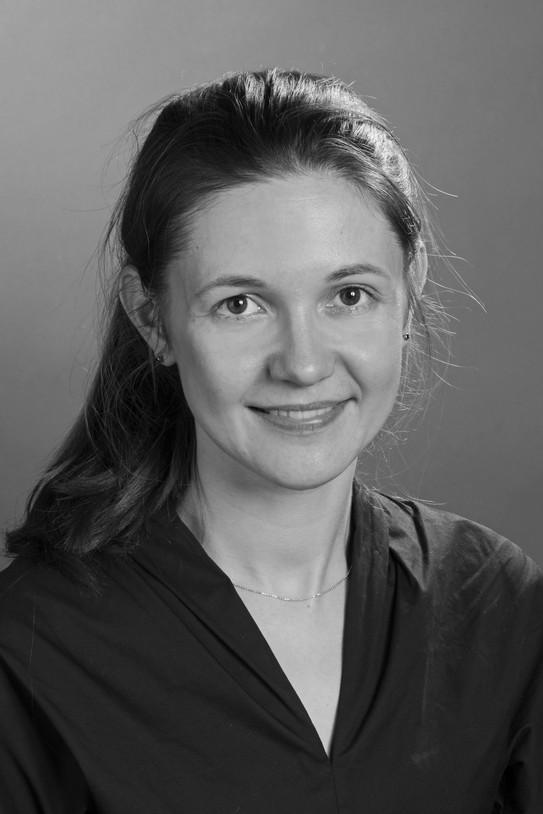Nadezda Krasilnikova
Profile

In my research at TU Dortmund, I deal with the questions of traffic-saving neighbourhood development. The work focuses on the potential of flexible forms of living and working. The goal is to create a new model, especially for suburban development, which will strengthen the quality of life and promote traffic avoidance. For this it is important to understand the spatial conditions and the spatial effects of digital forms of work.
The analysis of the spatial connection of work and residential place, or work-related mobility patterns is based on Hägestrand's theory from Time Geography (1970) in my work. I see the implementation of this theory in different spatial areas and on different scales as one of the most exciting and challenging tasks in my research.
My work in the MoveMe research group at TU Dortmund University links to my previous research at RWTH Aachen University and in the program of Oxford Russia Fellowship. Previously, I graduated from the South Ural State University in Russia with a Diploma in Urban Design and then earned a Master's degree in Architecture at RWTH Aachen University.
CV
Professional career
Since 2019 | Researcher Research project: MoveMe |
2018 | Research assistant |
2015 - 2019 | Research work Faculty of Architecture, RWTH Aachen |
2013 - 2015 | Student assistant Faculty of Architecture, RWTH Aachen |
2010 - 2013 | Work in architectural offices in Russia and Germany |
Academic education
Since 2020 | Promotion Spatial Planning, Technische Universität Dortmund |
2013 - 2015 | Master's program Faculty of Architecture, RWTH Aachen |
2004 - 2010 | Dipl. Architect Designer Faculty of Architecture, Department of "Design of Architectural Environment" |
Research Groups
2017 - 2019 | Research College ACCESS! |
2017 - 2018 | Center for urban insecurity Project in collaboration with Schader Stiftung (Co-Founder) |
2014 - 2018 | Kolleg Europa Studienstiftung des deutschen Volkes, Alfred Toepfer Stiftung, DAAD |
Scholarships
2019 - 2020 | |
2014 - 2018 | Europa-Fellowships |
2013 - 2014 | Scholarship of the RWTH Bildungsfonds |
2013 - 2014 | Doktor Carl-Arthur Pastor-Scholarship |
Research
Research questions
- How is digital work changing work-related mobility patterns and the spatial connection between work and residential place?
- What potentials do urban, suburban and rural areas have for digital work?
- Which planning concepts are suitable for traffic-saving neighbourhood development in the suburban area with a view on the attitudes of employees and employers toward digital work from home and in co-working spaces?
As a result of digitalisation, flexibilization has become a standard term for describing social change. The COVID-19 pandemic is strengthening this. Working conditions are changing. The employments with flexible working hours and locations are becoming popular. However, this affects not only the mode of work itself, but also work-related mobility or the spatial connections between work and residential place. Furthermore, the existing built environment presents contrasting learning fields for the ways organization of work, living and mobility can be implemented. Functionally mixed, dense urban spaces, which present the "city of short distances” model, characterise the cities just as much as the sprawl car-oriented suburban and rural neighbourhoods, which represent "decentralized concentration". In my PhD project, I am challenged to identify changes in working conditions and as the result in work-related mobility patterns in urban, suburban and rural areas on different scales (on the regional and on the local ones). The goal here is to develop the strategy to integrate digital work (at home and in a co-working space in particular) into neighbourhood life, to support this as a center of interests and to promote traffic reduction.
Methods
Mixed-method approach of social and spatial research:
- Survey on the topic: Spatial connection between work and residential place
- Interviews with employees as well as employers on the topic: Attitudes towards work from home and work in co-working space
Publications
Contributions since 2021
Krasilnikova, N. & Levin-Keitel, M. (2022): Telework as a Game-Changer for Sustainability? Transitions in Work, Workplace and Socio-Spatial Arrangements. Sustainability 2022, 14(11), 6765. DOI: https://doi.org/10.3390/su14116765
Krasilnikova, N. & Levin-Keitel, M. (2021): Remote work from a socio-spatial perspective: Co-working spaces as a chance for suburban and rural areas? Raumforschung und Raumordnung | Spatial Research and Planning. DOI: https://doi.org/10.14512/rur.115
Krasilnikova, N. (2021): Гибкие паттерны перемещения на работу и обратно у современных жителей Челябинска / Flexible Commuting Patterns by Current Residents of Chelyabinsk. Экономическая социология / Journal of Economic Sociology, 22 (3), S. 104-128. http://dx.doi.org/10.17323/1726-3247-2021-3-104-128
Krasilnikova, N. (2021): Lernen von Socgorod. Räumliche Transformation von Uralmaš, Russland. RaumPlanung, 221(2), S. 80-86
Media reports since 2020
„15-минутный город“ в России /„15-minute city“ in Russia, https://www.vtimes.io/2020/12/25/15-minutnii-gorod-v-rossii-a2228, 25.12.2020
Гибкие работники: как поменяются города-миллионники после пандемии / Flexible workers: how cities will change after the pandemic, https://realty.rbc.ru/news/5eddf0599a7947e4a6e5fedc, 08.06.2020
Contact
Nadezda Krasilnikova
TU Dortmund University
Spatial transformation in the Digital Age
Faculty of Spatial Planning
August-Schmidt-Straße 10
44227 Dortmund
GB III, Room 414
Phone: +49 (0)231 755-2218
Mail: nadezda.krasilnikovatu-dortmundde

